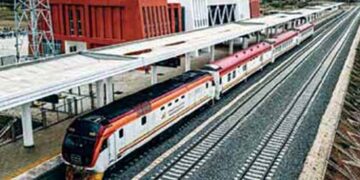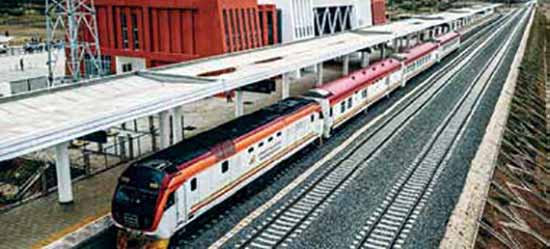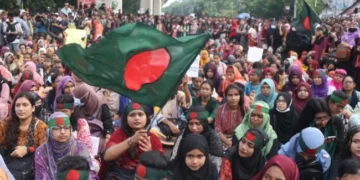Team Blitz India
THE African Development Bank Group has greenlit financing structures amounting to $696.41 million for the initiation of phase II of the Joint TanzaniaBurundi-DR Congo Standard Gauge Railway (SGR) Project.
In a move aimed at transforming the Central Transport Corridor into an economic powerhouse, the Bank’s funding will facilitate the construction of 651 km on the Tanzania-Burundi railway line.
The project encompasses the development of a single electrified standard gauge track, delineated into three key lots. The first, spanning 411 km, links Tabora to Kigoma in Tanzania. The second, covering 156 km, connects Uvinza to Malagarasi, also in Tanzania. The third lot involves an 84 km stretch from Malagarasi to Musongati in Burundi.
These railway links will seamlessly integrate with Tanzania’s existing network, facilitating access to the port of Dar es Salaam.
In the initial phase of the project, 400 km of rail infrastructure from Dar es Salaam to Dodoma has been completed in Tanzania, with the remaining stretch from Dodoma to Tabora under construction.
The funding structure from the Bank Group comprises $98.62 million in grants for Burundi and $597.79 million in loans and guarantees for Tanzania. Functioning as the Initial Mandate Lead Arranger (IMLA), the Bank will orchestrate and mobilise financing of up to $3.2 billion from commercial banks, development financial institutions (DFIs), export credit agencies (ECAs), and institutional investors. The comprehensive cost of the project across both nations is estimated at nearly $3.93 billion.
The Standard Gauge Railway (SGR) is envisaged to revolutionise transportation, incentivising largescale mining and commercial agriculture by providing an efficient and cost-effective longhaul bulk transport service. This is expected to convert the Central Transport Corridor into an economic powerhouse, bolstering trade and manufacturing opportunities and reducing reliance on roads, known for accidents and high maintenance costs.
The SGR railway network will unlock and connect vital economic processing zones, industrial parks, inland container depots, and population centres along the central corridor, thereby enhancing accessibility and fostering economic activities.
Beyond its economic impact, the project will contribute to building resilience by establishing and developing institutions managing the new railway sector in Burundi and offering capacity-building initiatives through skills training in both nations.
































